We intended to drive a circuit of the Cappadocia area today,
but after Phyllis’ iPhone service ceased overnight we first made a small detour
to the larger nearby town of Nevsahir to check with the cell phone provider. Unfortunately, neither TurkCell store we
found spoke
much English, but with the help of Google Translate (taking turns
typing onto the screen in either English or Turkish), they seemed to be saying
the iPhone was now restricted and would not work unless we paid an additional
115 (or 150, it was never clear) Turkish lira (about $64). We were pretty outraged, since we paid about
$70 in Istanbul 11 days ago for what was sold as a month-long package of data
and voice transmission. But both
Turkcell stores concurred, and an independent iPhone vendor we visited (who
actually spoke good English) confirmed that
there was some sort of
government-imposed fee we would have to pay to get the phone to work
again. Having nearly wasted the morning (we
did at least buy a new memory card for the camera) and frustrated as all get
out, we went on to our Cappadocia drive, and arrived at the underground city of
Kaymakli by lunchtime.
This place was apparently made for hobbits; Craig had to
move around in a half crouch for much of the time (about an hour) and even
Phyllis had to bend over to negotiate the
passageways. This is one of several cities in the area
that were carved out underground so the residents could hide from persecution
by other religions or assorted invaders like the Persians. This particular city had a population of
3,000; another one nearby held 10,000 all underground. It’s hard to imagine a life underground, and
easy to wonder how they did not get lost in the labyrinthine environment of
living rooms, bedrooms, kitchens, storage rooms, churches, and so on. But it was indeed a regular city, just underground.
Leaving the underground town we ran a gauntlet of tourist
and food shops just outside the entrance, and found a wonderful lunch of Coke
and freshly made potato chips deep fried on a skewer (Turks put everything on a
skewer). Awesome! Then onward to some more churches carved into
those unique cone-like stone formations in the village of Soganli, complete
with local women selling the handmade dolls -- for which the town is reputedly
famous -- in the village square. There is
not much business this time of year, and so our senses were assaulted and
overwhelmed by the four old ladies who were each noisily insistent that we buy
her dolls. We only wanted two
but Craig, the Southern Gentleman
not wanting to offend, ended up buying a doll from each of them. Then, as we were preparing to leave,
clutching our four dolls, another even older lady came up and everyone shouted
excitedly, “Grandmother, this is Grandmother, you have to buy from her.” Now we have five. We hit the road quickly in case they were
calling all their relatives.
Back to Goreme via some featureless high steppes (again,
like Kansas but with altitude and the occasional random cave house carved into
rocks). Just in case you think it’s merely
a feature of a touristy town like Goreme, not so. This whole area is full of oddly shaped rocks
that are riddled with caves of different sizes and functions, including in one
instance a garage. It’s just a part of
everyday life, apparently. Then, another
cocktail hour on the terrace, conversing with the hotel owner and staff, who
educate us about the cell phone racket.
In fact one of the staff had no service
either, as he had brought an iPhone
back to Turkey a week or so ago from Canada and it was now similarly locked. It seems that the government does indeed
impose a rather steep tax on smart phone imports, and innocent tourists like us
are caught up in the effort to prevent people from smuggling iPhones etc from
abroad where they are purchased at less than a quarter of the price they are
sold for here, and reselling them for a huge untaxed profit.
Because the government knows your phone and phone number
(because you register both with your passport when you buy a SIM card here),
they can just deactivate it at some point
if you have not paid the onerous
tax. Which is what apparently they did to us last night. So, Phyllis can pay
the tax and wait 3-10 days for her phone to be reactivated, the time required
apparently can vary quite a bit, or just live on wi-fi the rest of the time in
Turkey. As we only have two more weeks in
country, we decided to go with the cheaper option. Our chief complaint now is that the TurkCell
phone store in Istanbul did not tell us this would happen when they happily
sold us a month-long data plan. However
annoying this whole episode is, the discussion over wine with the hotel folks
and the excellent clay pot dinner later mitigates some of the bad taste this
left in
our mouths. We will just live
with it, but Phyllis resolves to go back by the TurkCell store in Istanbul and
scold them when we pass back through that city.
Craig expects it would be less of a waste of time to drink tea with a
carpet salesman. Tonight we slept in a
different room, as host Mehmet had to move us to accommodate someone else’s
reservation. He treated us to a deluxe cave
suite, which was almost too big for us, but was even more cave-like (in a
luxurious way).

 Göreme, Nevşehir, Turkey
Göreme, Nevşehir, Turkey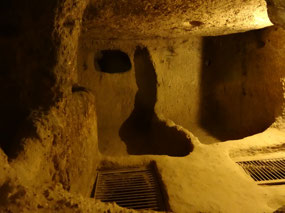
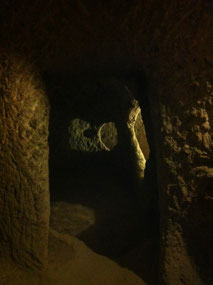
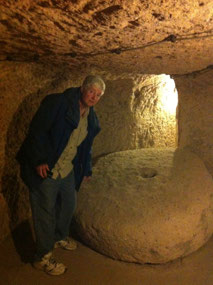
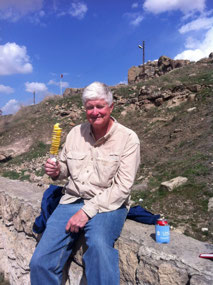
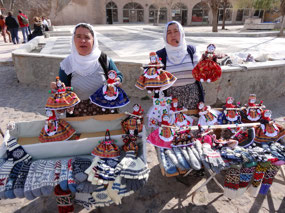
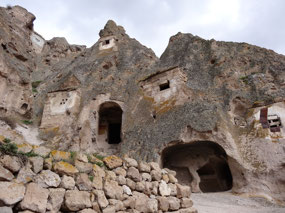
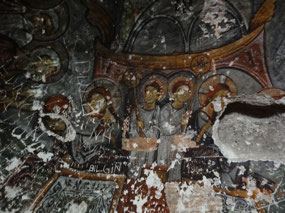
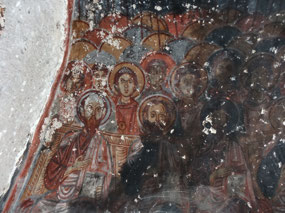
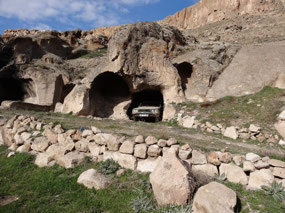






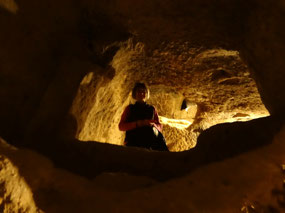
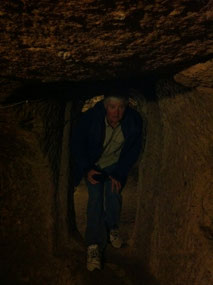

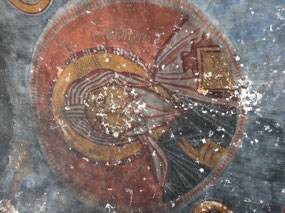
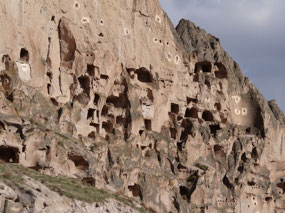
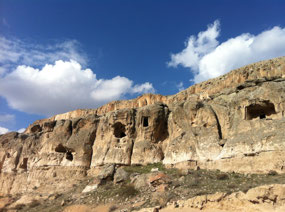
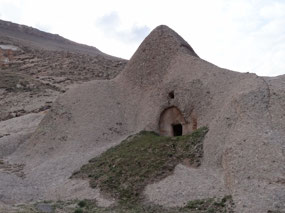
2025-05-23